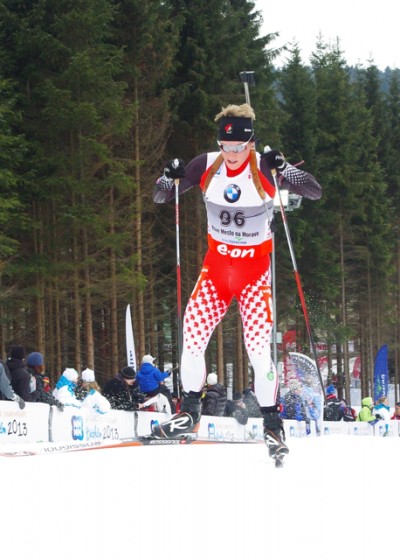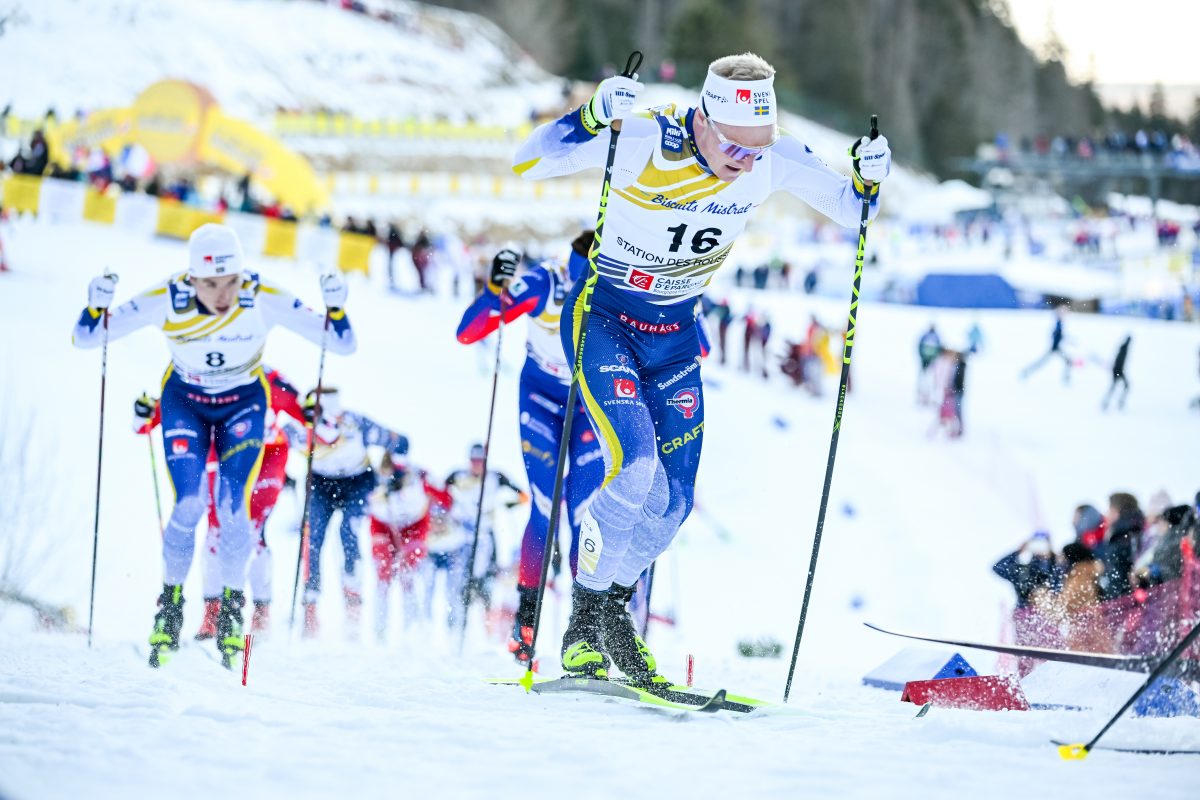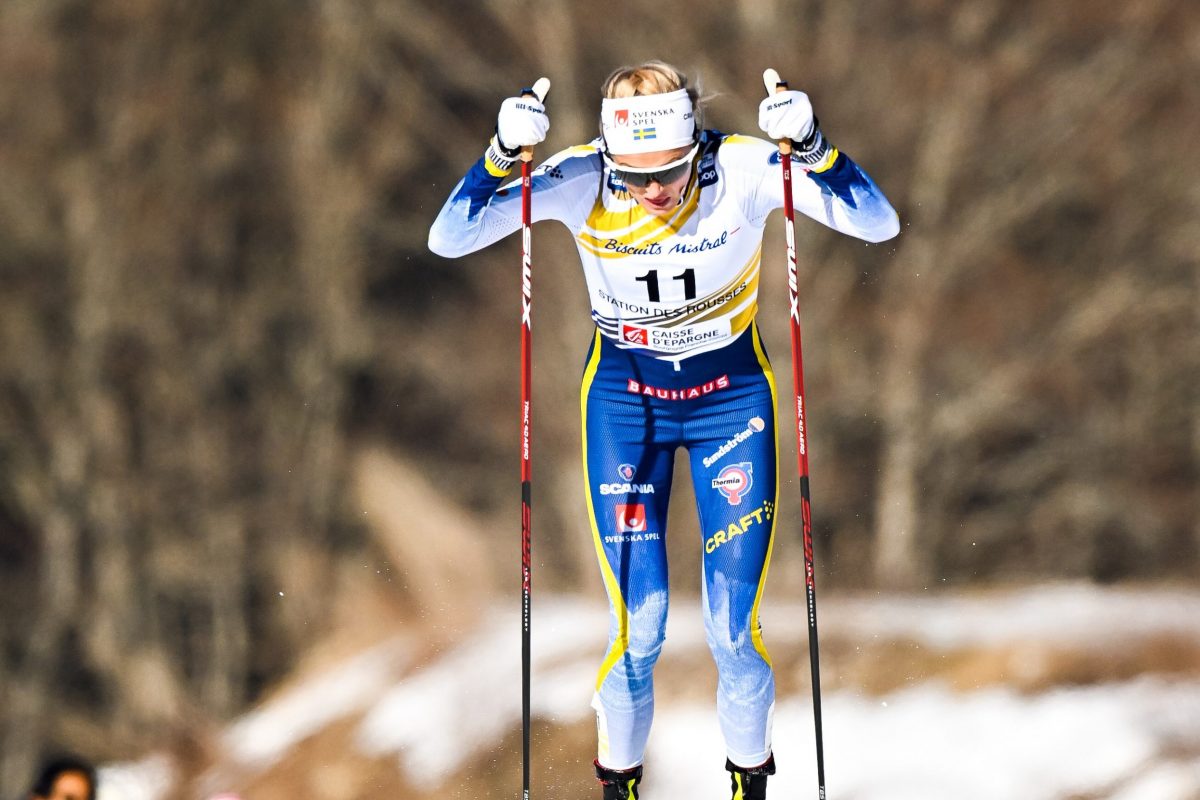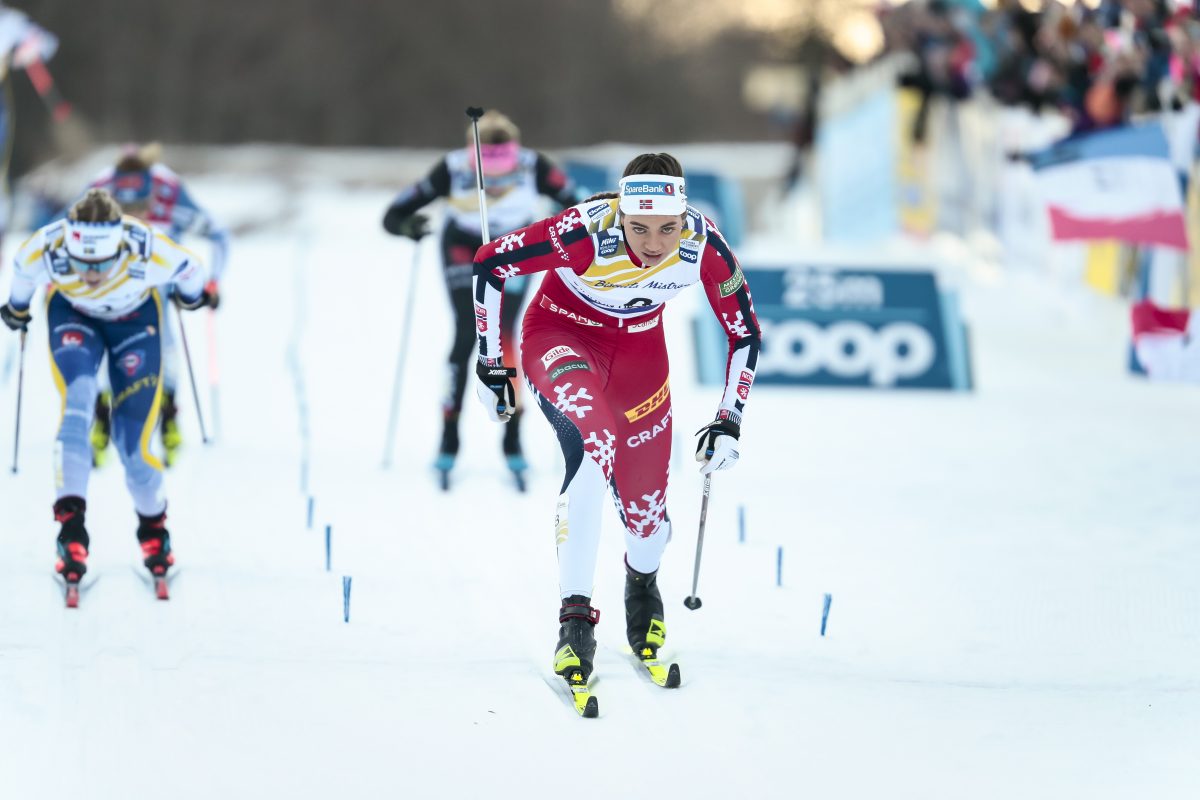
For Canada’s biathlon team, the past weekend’s races in Sochi weren’t exactly how you might hope to baptize a new Olympic course.
“Bummer day?? More like weekend!” Jean Philippe Le Guellec wrote in reponse to questions from FasterSkier. “There are no painful questions, just straight facts.”
And here are the facts: Le Guellec had a pretty miserable time, finishing 77th in the individual race and 52nd in the sprint. Canada placed 15th in the relay, where Le Guellec struggled in the leadoff leg, requiring five spare rounds. The Canadian men failed to score points in any race; Scott Gow’s 49th-place result was best in the sprint, while none of the team made the top 60 in the individual.
(Unlike Le Guellec and Perras, Gow told FasterSkier that he was “very happy” with his races, especially with clean shooting in the sprint: “My shooting let me down in the individual, but it came back into form for the next two races.”)
The women didn’t fare much better. The high point was likely the relay, where they raced to a very respectable tenth-place finish. In the individual, Megan Heinicke didn’t start and Rosanna Crawford didn’t finish; Megan Imrie’s 57th place was better than any of the team’s results in the sprint.
Le Guellec admitted that the team just does not have the form that earned him his first World Cup win earlier this year, or a string of career bests for Scott Perras and Crawford.
“The weekend was a complete drag,” he said after finishing 52nd in the sprint despite clean shooting. “I don’t know where my ski shape went, but it was not with me on the skis! There’s simply nothing to add there.”
The Quebec native added that he had been sick in Oslo, and perhaps was still recovering. He hoped that by the World Cup finale, he’d be back to skiing a bit faster.
Perras was similarly frustrated, saying that he was “definitely not happy” with his races. He thought that the team’s yearly plan just hasn’t allowed them to be fast this late in the season.
“I have felt decent here, but like Oslo the skiing wasn’t my best,” he wrote in an e-mail. “We trained hard and put in a high amount of high intensity early this year, and I think we came into the season all cylinders firing. I think we are just in a bit of a lag and it should get better but I might run out of time.”
The relay, which Perras anchored, was a particularly tough pill to swallow.
“I think there are two times this year people really wanted to be on – World Championships and the pre-Olympic World Cup,” he wrote. “But with sub par skiing and shooting I am left disappointed. I was really disappointed after the relay today that I couldn’t catch Belarus, whom we are currently in a fight with for top 15 Nations Cup.”
With just three races to go, Canada is ranked 16th in the Nations Cup, just 42 points behind Belarus (a World Cup win is worth 60 points). Making up the margin in Khanty-Mansiysk, where racing starts on Thursday, is doable, but the team will have to find their ski legs to make it happen.
The incentive is definitely there: currently allowed just three starters per World Cup, moving into the top 15 would mean gaining a quota spot. Having three starters is tough for a number of reasons: it’s hard to score the points needed to move up, and it often means not fielding a relay team, unless someone can be recruited from a different nearby competition.
But among the cheerful aspects of the weekend was the fact that, at last, the Canadian men were traveling with more than a full team. In a bid to win back some points, they brought four men, with Kurtis Wenzel competing in his very first World Cup as the third leg of the relay. He acquitted himself well, using just one spare round.
“We had to push hard to get a fourth man out here,” Le Guellec said. “Since we generally miss Oberhof, and a relay, it’s really hard for us to stay in that top 15 benchmark given the tough competition. So missing the relay here on top of that was unthinkable.”
Plus, there was another guest: Brendan Green, who along with Le Guellec led the team last season, but has been out for more than a year with a difficult recovery from a herniated disc. Green was in no shape to race, but he came along to see the venue anyway.
“B-man was out here to get his own glimpse of the venue and tracks,” Le Guellec said. “It was honestly overwhelming to see him on skis and really good to see him out and about!”
The recon Green was performing serves the same purpose as the test races: to learn what to tweak in the next year of training in order to be the best at the Olympics. For Le Guellec, the course previews were both a bit intimidating, and a bit familiar.
“I definitely have my work cut out for me given the profile of the course,” he said. “It resembles Valcartier a whole lot, but I haven’t trained at home in the winter for close to a decade. Two weeks for Christmas doesn’t count!”
Perras, though, more or less liked the courses.
“I like the venue – the views are amazing and I live in Canmore,” he said. “The trails are hard and I like it that way. But the downhills are a bit much. I like to see a course where you have to use your head to win and you need to be in shape, without having to worry that someone is going to take you out.”
So perhaps being bold, brave, and a good downhiller are a few notes that the racers will tuck away to remember while they’re training.
With specific goals to work on now that he’s seen the venue, Le Guellec won’t let the bad results keep him down for long. After all, he’s been through this before.
“The weekend doesn’t affect my confidence for next year,” he said. “We’re in a whole other part of the season right now, so this is not how it’s going to go down next year. The same thing happened before Vancouver: it didn’t go so well at the World Cup the year before. Then 2010 rolled around.”
He was referring, of course, to his sixth, 11th, and 13th-place performances at the last Olympics. He doesn’t see any reason that can’t happen again – or something even better.
Perras agreed.
“I certainly haven’t lost any motivation and feel that I know what I need to accomplish this training season to make sure next year is my best,” he wrote. “The Canadian team isn’t done with Sochi. I feel next year is going to be the peak of many of my teammates’ careers in biathlon.”
Chelsea Little
Chelsea Little is FasterSkier's Editor-At-Large. A former racer at Ford Sayre, Dartmouth College and the Craftsbury Green Racing Project, she is a PhD candidate in aquatic ecology in the @Altermatt_lab at Eawag, the Swiss Federal Institute of Aquatic Science and Technology in Zurich, Switzerland. You can follow her on twitter @ChelskiLittle.



